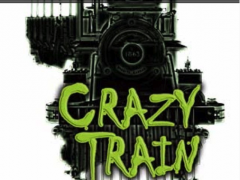Bullet-train officials praise judge they called a threat to CA
by Chris Reed | July 28, 2014 8:15 am
 The California High-Speed Rail Authority got some good news from the courts last week. The 3rd District Court of Appeal in Sacramento upheld a lower court ruling rejecting legal challenges to the routing of the bullet train in the Gilroy-Las Banos area, specifically the Pacheco Pass. That ruling won praise from state officials when it first came out last year and again last week.
The California High-Speed Rail Authority got some good news from the courts last week. The 3rd District Court of Appeal in Sacramento upheld a lower court ruling rejecting legal challenges to the routing of the bullet train in the Gilroy-Las Banos area, specifically the Pacheco Pass. That ruling won praise from state officials when it first came out last year and again last week.
This is from the San Francisco Business Times of Feb. 28, 2013:
“This is an important ruling and is testament to the fact that the authority is committed to delivering the high-speed rail project in accordance with the law and in partnership with the public,” Jeff Morales, the authority’s CEO, said in a prepared statement.
This is from Associated Press via the SJMN[1] on Thursday:
“Today’s court ruling reaffirms our successful compliance with the California Environmental Quality Act,” Lisa Marie Alley, a spokeswoman for the California High-Speed Rail Authority, said in a written statement.
This praise for a lower-court judge is not the norm for the rail authority.
It’s been sharply — even comically — critical of Sacramento Superior Court Judge Michael Kenny for his November ruling that the state had inadequate funding and environmental approvals to begin construction of the project’s initial $31 bilion, 300-mile segment. Kenny cited strict rules in Proposition 1A, the 2008 measure that provided $9.95 billion in seed money for the bullet train network.
Ruling could block ‘access’ to financial markets
Lawyers for the rail authority say Kenny doesn’t understand state law and is making judgments on the soundness of the project’s finances and its compliance with state law that should be left to the Legislature. They also said the fact that the court fight could severely delay the project was somehow a legal argument against it[2]:
Forcing the authority to litigate the validity of the trial court’s ruling in separate appellate proceedings … could be disastrous both for the high-speed rail project and others like it.
And this is pretty incredible: State lawyers warn that putting tight legal safeguards on a really controversial infrastructure project could make it more difficult for California to borrow money! The decision …
... would effect a substantial change to a public finance system that has been allowing the state to access financial markets for decades, without providing any real alternative.
But there’s a problem. Kenny is also the guy who issued the February 2013 ruling that state officials like.
He’s a genius when he agrees with the rail authority. He’s a bozo when he doesn’t.
What really matters? What CA high court thinks
 The same appellate court that upheld Kenny’s February 2013 ruling has until Aug. 24 or so to decide on the state’s appeals of his November 2013 rulings. At a May hearing, the appeals panel appeared sympathetic to the rail agency’s arguments.
The same appellate court that upheld Kenny’s February 2013 ruling has until Aug. 24 or so to decide on the state’s appeals of his November 2013 rulings. At a May hearing, the appeals panel appeared sympathetic to the rail agency’s arguments.
If that is how it rules, that sets up a potentially huge appeal to the California Supreme Court.
The Brown administration’s position on Proposition 1A is pretty radical. It holds the courts can’t get in the way of big state projects because they’re … big — and really important!
It goes against the long history in California of propositions being battled over, and sometimes thrown out or reshaped, by the courts.
Paging Rose Bird, paging Rose Bird
Why should the execution of a transportation project established by state law be governed by the governor’s and the Legislature’s interpretation of state law, not the courts? Where’s the precedent for the judiciary being shunted aside on questions about the legality of a very high-profile public project?
If we are talking about the intent of the drafters of Prop. 1A, starting with Quentin Kopp, it is obvious they wanted the measure’s protections to really be protections — not meaningless campaign rhetoric.
If the California Supreme Court upholds an appellate ruling that says courts should butt out of big infrastructure projects, that is mind-boggling. I bet it would become a national topic.
Rose Bird the Sequel?
Maybe. Such a decision would make direct democracy seem like a sham. Never forget that the Legislature’s handling of the ballot language for Prop. 1A was so outrageous that it was emasculated[3] by the courts and banned from any future direct writing of ballot language:
Now some appellate judges apparently think the same lame Legislature should interpret what 1A means, not the courts.
Really?
- via the SJMN: http://www.mercurynews.com/california-high-speed-rail/ci_26211208/high-speed-rail-pacheco-pass-route-upheld-by
- legal argument against it: http://www.dof.ca.gov/twitterdocs/HSR_Court_Filing.pdf
- it was emasculated: http://ballotpedia.org/Howard_Jarvis_Taxpayers_Association_v._Bowen
Source URL: https://calwatchdog.com/2014/07/28/bullet-train-officials-praise-judge-they-called-a-threat-to-ca/